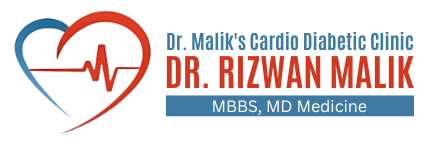Hypothyroidism, a condition where the thyroid gland produces insufficient thyroid hormones, is a common yet often underdiagnosed health issue. This tiny, butterfly-shaped gland in your neck plays a crucial role in regulating metabolism, energy levels, and overall well-being. Understanding its symptoms and knowing the right solutions can help you take charge of your health.
In this blog, we’ll explore how to identify hypothyroidism, its common symptoms, and the solutions available to manage it effectively.
What is Hypothyroidism?
The thyroid gland produces two essential hormones, triiodothyronine (T3) and thyroxine (T4), which regulate metabolic processes in the body. In hypothyroidism, the gland doesn’t produce enough of these hormones, leading to a slowdown in various bodily functions.
Common Symptoms of Hypothyroidism
1. Fatigue and Weakness
One of the earliest and most common signs of hypothyroidism is persistent tiredness. You may feel drained even after adequate sleep and rest.
2. Weight Gain
Unexplained weight gain despite no significant changes in diet or exercise is a hallmark symptom. This occurs due to the slowing of metabolism.
3. Cold Sensitivity
Feeling unusually cold, even when others around you are comfortable, is a common symptom. This happens because hypothyroidism slows heat production in the body.
4. Dry Skin and Hair
Hypothyroidism often leads to dry, flaky skin and brittle hair due to reduced oil production. Hair thinning and hair loss are also frequent complaints.
5. Constipation
The condition can slow digestive processes, leading to frequent constipation and bloating.
6. Depression and Mood Swings
Hypothyroidism is linked to feelings of sadness, depression, and mood instability. These occur due to hormonal imbalances affecting brain chemistry.
7. Hoarseness and Swelling
A hoarse voice or swelling in the neck (goiter) might indicate an enlarged thyroid gland struggling to produce hormones.
8. Menstrual Irregularities
For women, hypothyroidism can cause heavy or irregular menstrual periods, fertility issues, or even missed cycles.
9. Slow Heart Rate
A reduced level of thyroid hormones can lower heart rate, sometimes causing feelings of fatigue or dizziness.
10. Memory and Concentration Issues
Often referred to as “brain fog,” hypothyroidism can impair focus, memory, and the ability to think clearly.
How Hypothyroidism Affects Overall Health
Impact on the Gut Microbiome
Hypothyroidism can disturb gut health by slowing digestion, leading to imbalances in the gut microbiome. An unhealthy gut can exacerbate symptoms like bloating, constipation, and fatigue.
Cardiovascular Risks
Low thyroid hormones can increase cholesterol levels, raising the risk of heart disease.
Reproductive Health
For women, untreated hypothyroidism can lead to complications during pregnancy, including preeclampsia and low birth weight.
Diagnosing Hypothyroidism
1. Blood Tests
- TSH Test: Measures Thyroid-Stimulating Hormone. High levels indicate the thyroid gland is underactive.
- Free T4 Test: Checks the level of thyroxine in the blood.
2. Physical Examination
A doctor may examine the neck for swelling or nodules and evaluate symptoms like dry skin, slow reflexes, or an irregular heart rate.
3. Medical History
Family history and past medical conditions, such as autoimmune diseases, are crucial in assessing thyroid function.
Solutions for Hypothyroidism
1. Medication
- Levothyroxine: This synthetic thyroid hormone is the most common treatment. It restores hormone levels and alleviates symptoms.
2. Dietary Adjustments
- Iodine-Rich Foods: Iodine is essential for thyroid function. Include iodized salt, seafood, and dairy in your diet.
- Selenium: Brazil nuts, eggs, and fish are good sources that support thyroid health.
- Avoid Goitrogens: Limit intake of raw cruciferous vegetables like broccoli and cauliflower, which can interfere with thyroid function.
3. Lifestyle Modifications
- Exercise Regularly: Physical activity boosts metabolism and alleviates symptoms like fatigue and weight gain.
- Stress Management: Practice yoga, meditation, or deep breathing exercises to reduce stress, which can exacerbate hypothyroidism symptoms.
4. Gut Health Support
- Incorporate probiotics like yogurt, kefir, or fermented foods to maintain a balanced gut microbiome.
- Increase fiber intake to prevent constipation.
Preventing Hypothyroidism
- Regular Check-Ups: Annual thyroid function tests can help catch imbalances early.
- Maintain a Healthy Diet: Consuming a balanced diet with sufficient iodine, selenium, and zinc supports thyroid health.
- Stay Active: Regular exercise helps maintain a healthy metabolism.
Living with Hypothyroidism
Consistency is Key
Take medications as prescribed and follow up regularly with your doctor. Thyroid levels need periodic monitoring to adjust dosages.
Listen to Your Body
Be aware of changes in symptoms and report them promptly to your healthcare provider.
Build a Support System
Join support groups or online forums to connect with others managing hypothyroidism. Sharing experiences can be empowering.
FAQs
- Can hypothyroidism be cured?
- Hypothyroidism cannot be cured in most cases but can be effectively managed with medication and lifestyle changes.
- Is hypothyroidism more common in women?
- Yes, women are at higher risk due to hormonal fluctuations, especially during pregnancy, menopause, or autoimmune conditions like Hashimoto’s thyroiditis.
- What happens if hypothyroidism is left untreated?
- Untreated hypothyroidism can lead to severe complications like heart disease, infertility, or myxedema, a rare life-threatening condition.
